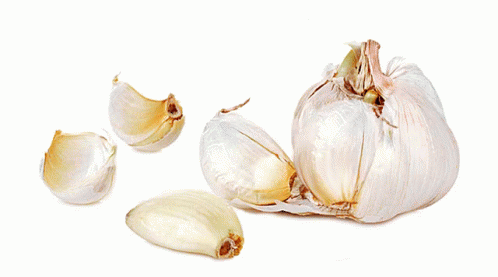
Garlic – Should it be a Staple? By Acharya Ravi
For Zen monks, it is one of five prohibited items. Yogis strictly avoid it. The Chinese Taoists who run Eugene’s Lotus Garden restaurant won’t cook with it. (Neither would the cooks at now defunct Govinda’s and Golden Avatar restaurants.) Brahma Kumariis and Hari Krishnas don’t eat it. Young children have an aversion to it. Yet, for most who eat vegetarian or whole foods diets, garlic has become virtually a staple food.
Dr. Robert Beck, in a lecture at the 1996 Whole Life Expo, offered an explanation for why many people concerned about quality brain functioning avoid eating garlic: ‘Garlic kills tens of thousands of brain cells and desynchronizes the left and right brains waves. The reason garlic is so toxic is that the sulphone hydroxyl ion penetrates the blood-brain barrier and is a specific poison for brain cells. We discovered this when I was the world’s largest manufacturer of EEG feedback equipment. We’d have people come back from lunch that looked clinically dead on an encephlograph, which we used to calibrate their progress. “What happened?we’d ask. “Well, I went to an Italian restaurant and there was some garlic in my salad dressing.So we had them sign an agreement that they wouldn’t touch garlic before classes or we would be wasting their time and their money.’
Dr. Beck also recounted, ‘I was in flight test engineering in the 1950’s. The flight surgeon would come around every month and remind all of us: “Don’t you dare touch any garlic 72 hours before you fly one of our airplanes, because it’ll affect your reaction time. You’re three times slower than you would be if you’d not had the garlic.”’
After observing the disruptive effects of garlic during biofeedback therapy, Dr. Beck funded a study on garlic that was done at Stanford University. Talking about the findings, he said: ‘They found that it’s a poison. You can rub a clove of garlic on your foot and you can smell it shortly later on your wrists. So it penetrates the body. The sulphone hydroxyl ion penetrates all the barriers including the corpus callosum in the brain.’
Amazon #ads
As a demonstration of garlic’s effects on the brain, Beck suggested the following: ‘If you know anyone who has low-grade headaches, or attention deficit disorder, or they can’t quite focus on the computer in the afternoon, just do an experiment. Take these people off garlic and see how much better they get very shortly. And then let them eat a little garlic after about three weeks. They’ll say, “My God, I had no idea that this was the cause of my problems.”’
Garlic, of course, has a wide range of medicinal benefits, including a capacity to boost the immune system. It deserves appreciation for its healing properties. But does this justify making it a staple in one’s diet?
Paul Pitchford, in his book ‘Healing with Whole Foods’ (probably the most authoritative text on the subject of food as medicine), gives this perspective: ‘Garlic has been promoted as a near cure-all for an extensive list of ailments. But it is helpful to remember that powerful and strongly medicinal foods ought to be used cautiously in the normal diet.’ Pitchard goes on to warn that, ‘Garlic disperses mental concentration. . . . [It] brings excessive desires and mental dullness to the person, making mental/spiritual equilibrium difficult.’





